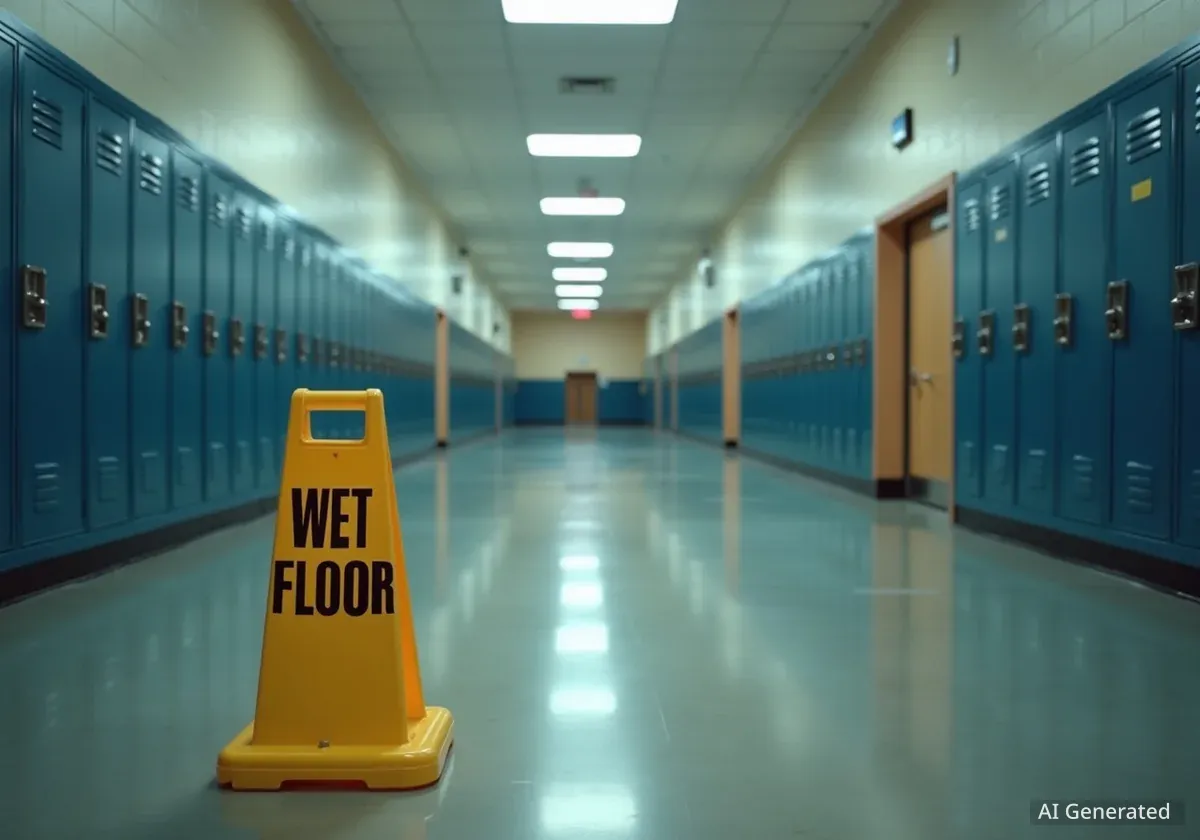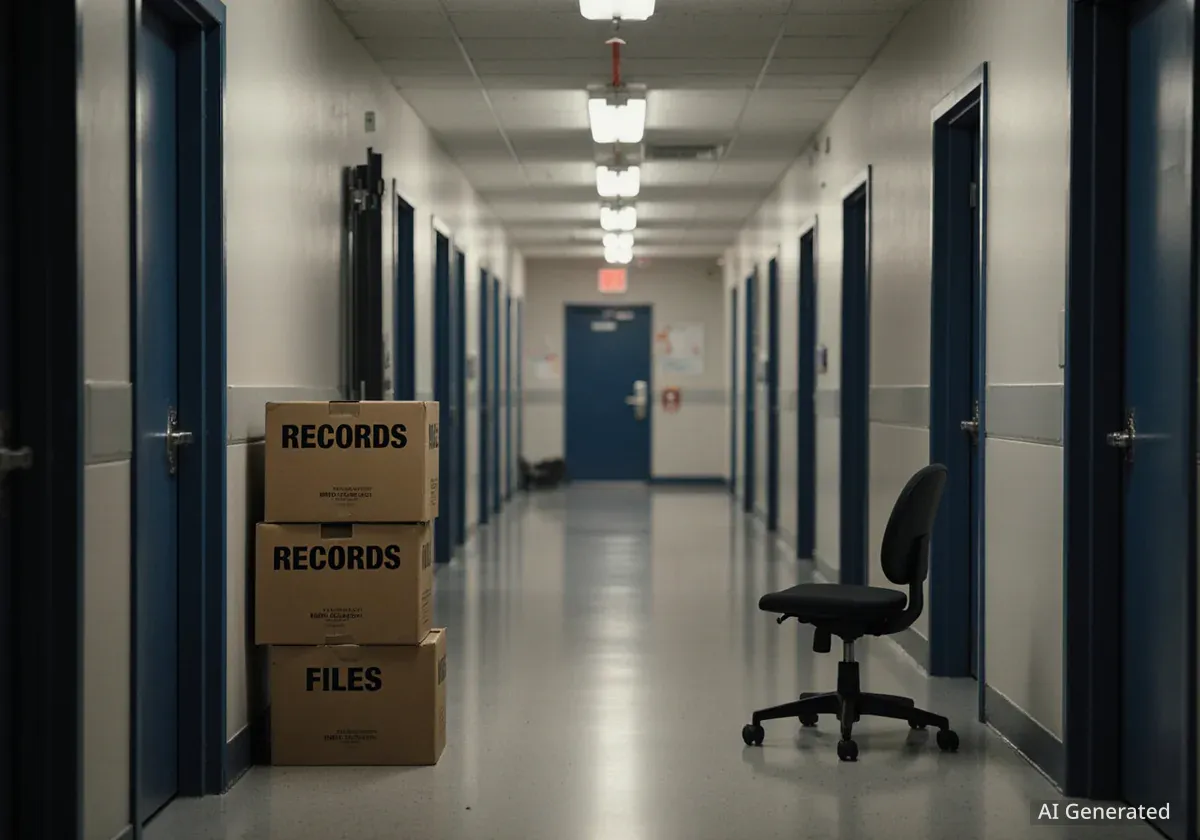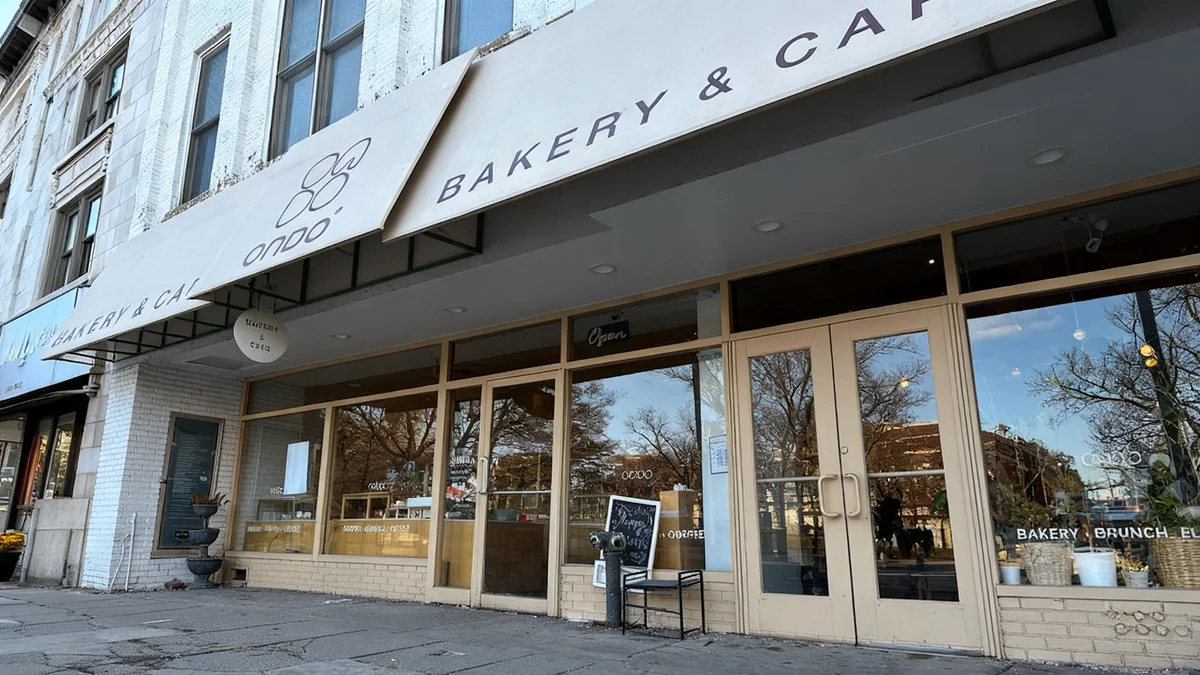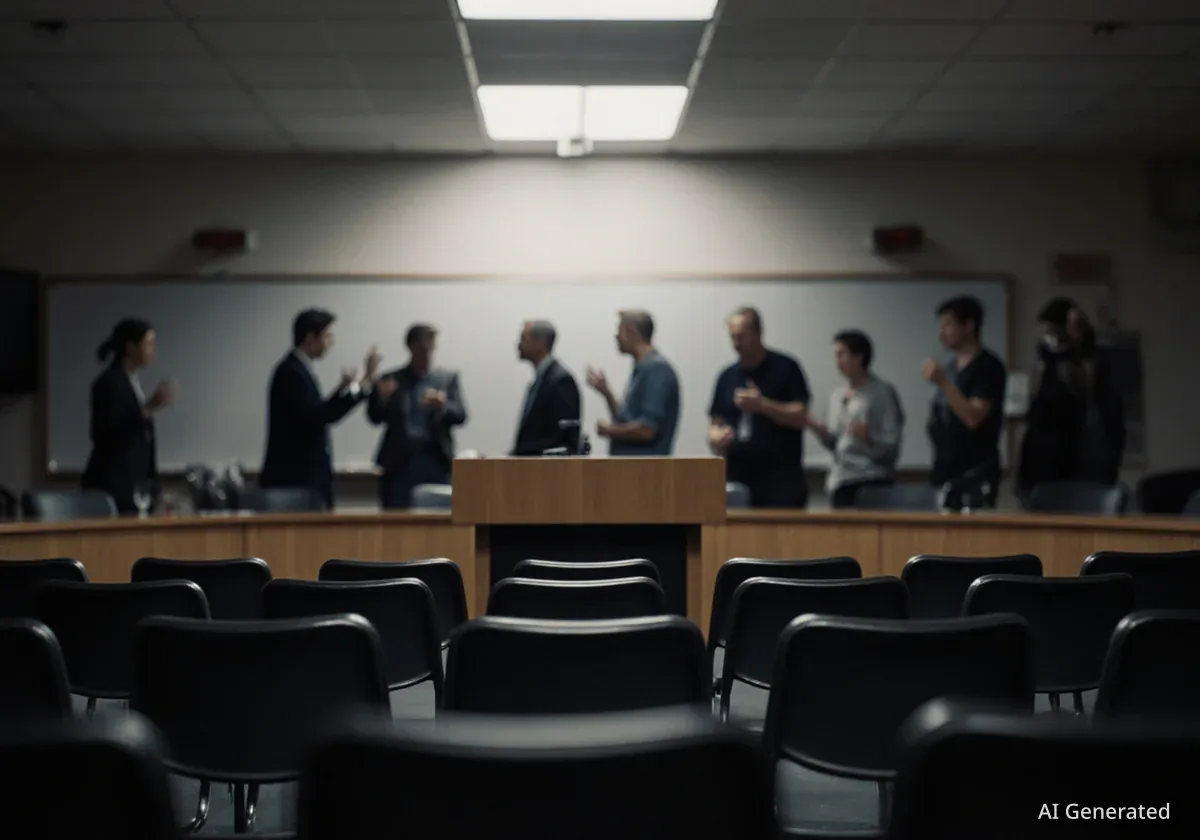An assistant teacher in North Carolina has been arrested and charged after allegedly deploying a foul-smelling spray throughout a high school, causing physical illness among students and leading to a costly investigation by the school district. Alexander Lewis, 32, is accused of using the substance at West Florence High School, prompting an extensive search for the source of the odor that cost the school $55,000.
Key Takeaways
- An assistant teacher, Alexander Lewis, 32, was arrested for allegedly using a foul-smelling spray at West Florence High School.
- The school spent $55,000 investigating the odor, initially suspecting gas leaks or HVAC issues.
- Students reported symptoms including nausea, dizziness, and headaches, with one parent claiming it triggered their child's asthma.
- Lewis was identified through surveillance footage and has been charged with causing malicious injury. He claims the bottle contained lemon-scented hand sanitizer.
Investigation Launched After Pervasive Odor
For a period of time, students and staff at West Florence High School were subjected to a powerful and unpleasant odor that permeated the hallways. The smell was so strong that it began to affect the health and well-being of those inside the building, leading to formal complaints and growing concern among the school community.
School officials initially treated the situation as a potential infrastructure failure. Believing the source could be a gas leak, a problem with the propane systems, or a malfunction in the heating, ventilation, and air conditioning (HVAC) system, the district launched a comprehensive and expensive investigation. These efforts were aimed at ensuring the safety of everyone on campus.
A Costly Search
The school district spent a total of $55,000 on inspections of its gas lines, propane systems, and air conditioning units in an attempt to locate the source of the mysterious and disruptive smell.
Despite the thorough and costly inspections, technicians found no mechanical or structural faults. The odor persisted, leaving administrators and safety officials puzzled as to its origin. The focus of the investigation then shifted from an accidental cause to a deliberate act.
Health Complications and Student Distress
The persistent foul smell had a significant physical impact on the student body. Multiple students reported feeling unwell, with symptoms ranging from headaches and dizziness to severe nausea. The environment became disruptive to the learning process, as students and teachers struggled to cope with the conditions.
One student described the experience to ABC News, detailing the immediate effect of entering certain areas of the school.
"Personally, as a student, every time I go to my second block class, I walk up the stairwell and immediately, teachers are covering their noses and their mouths, coughing because of the smell. I got physically sick the other day because of the smell; I feel like I’m going to pass out because I get so lightheaded and so dizzy."
The situation escalated for at least one student with a pre-existing medical condition. The parents of a student with asthma reported that the strong odor triggered their child's condition, requiring multiple visits to a doctor for treatment. This raised the level of concern among parents about the safety of the school's environment.
Suspect Identified Through Surveillance
With mechanical sources ruled out, school administrators turned to their surveillance camera systems to find an explanation. A review of the security footage ultimately provided a breakthrough in the case. The recordings allegedly showed an assistant teacher, identified as 32-year-old Alexander Lewis, spraying a liquid in the school's hallways.
Based on this evidence, law enforcement was contacted. Lewis was subsequently arrested and taken into custody. Investigators believe the substance he used was a commercially available spray designed to mimic the smell of fecal matter, often referred to as a "poop-spray."
Understanding the Charges
Alexander Lewis was charged with causing malicious injury to property. In North Carolina, this charge typically applies when an individual willfully and wantonly damages or destroys real or personal property belonging to another. The significant financial cost of the investigation and the disruption to the school could be factors in this charge.
During questioning, Lewis reportedly denied the allegations. He claimed that the spray bottle seen in the footage did not contain a noxious substance. Instead, he asserted that it was merely a lemon-flavored hand sanitizer. Authorities are proceeding with the charges based on the evidence collected.
Community Reaction and Unanswered Questions
The arrest has left the West Florence High School community frustrated and searching for answers. Parents have expressed anger and disbelief that a staff member entrusted with their children's care could be responsible for an act that caused physical illness and significant disruption.
One parent voiced the collective frustration of the community, highlighting the desire for an explanation from the accused teacher.
"It’s frustrating this gentleman was responsible for our kids, and I would love to have him say why he did it, and why he continued to do it after he learned kids were getting sick," the parent stated.
The motive behind the alleged actions remains unclear, which has only added to the community's concern. The school district has not commented on Lewis's employment status following his arrest. The case is now moving through the legal system, where the evidence will be presented and a final determination will be made.





